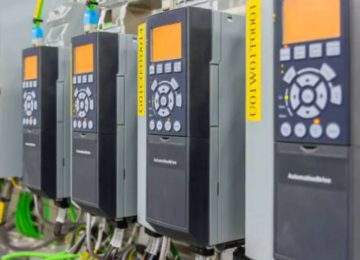New research shows that improved robotics and AI usage could reduce 853 million metric tons (MMT) annual carbon footprint. This is equivalent to 18% of US gas emissions, or eliminating 64% of gas-powered vehicles.
The research underscores the significance of utilizing robotics, sensors, and digitization to enhance industrial efficiency, decrease waste, and minimize the manufacturing sector’s carbon footprint.
The aim is to address blind spots in key physical infrastructure health, potentially achieving reductions by 2030.
Technology companies Gecko Robotics and Rho Impact collaborated to reveal research on the environmental impact of digitizing critical infrastructure.
Carbon footprint reduction in industries by 2030:
Oil and Gas Pipelines: 556 MMT CO2
Baseload Power Plant Reliability: 230 MMT CO2
Pulp & Paper Manufacturing: 46 MMT CO2
Maritime Transportation: 11 MMT CO2
Bridge Inspection & Maintenance: 10 MMT CO2
How these 4 industries can use technology to reduce fugitive emissions?
- By 2030, fugitive emissions from the oil and gas sector could be reduced by 556 MMT CO2e annually if corrosion, leaks, and other flaws are detected. Compared to undigitized, unrepaired assets, the findings show a 37% improvement in emissions efficiency, mostly due to a reduction in the release of strong greenhouse gases like methane.
- Decreasing forced outages: According to a previously published study by Rho Impact and Gecko Robotics from late 2023, digitizing boiler tubes at energy generation sites could result in an annual reduction of CO2 of up to 230 million tons. This is provided that more efficient baseload generation remains online and inefficient backup generation remains offline.
- Monitoring improves efficiency: By 2030, digitizing important physical assets in the pulp and paper sector could cut annual emissions by 46 million metric tons of CO2 equivalent. The U.S. Environmental Protection Agency has demonstrated that routine maintenance and inspection increase operational efficiency. When compared to non-digitized assets, digitization can result in an improvement in emissions efficiency of 6%.
- Optimizing maritime: Leak detection and load optimization offer substantial potential to reduce greenhouse gas emissions in maritime shipping. Because digitization increases the availability of the largest, most efficient shipping vessels, 11 MMT of CO2 emissions could be avoided. The world’s largest ships can operate up to 70% more fuel efficiently than smaller, less fuel-efficient vessels. Maritime transportation moves 90% of the world’s traded goods, according to the IEA.
Quotes:
“This study found that if robotic technologies can decrease overall stationary maintenance time by 1.5 days per large ship per year, then emissions from global maritime shipping could be avoided annually by 11 MMT CO2e in 2030, relative to a business as usual scenario,” said Rho Impact CSO, Seth Sheldon, PhD.
“This data represents a major shift in how the world thinks about achieving net zero and Industry 4.0,” said Jake Loosararian, CEO and Co-founder, Gecko Robotics. “At a time when leaders are balancing net-zero goals with economic stimulation and growing demand for energy, especially in developing economies, we need a new game plan to achieve 2030 goals. A paradigm that demands our existing infrastructure adopt technology at warp speed and ensures our renewable strategy doesn’t make the mistake of the infrastructure that got us here.”
“Improving the sustainability of today’s infrastructure requires ongoing innovation, including how we collect data about the built world,” said Gilman Callsen, CEO, Rho Impact. “The potential emissions impact of improving the reliability of heavy industry and infrastructure demonstrates the promise of deploying scalable technologies that are available today.”












